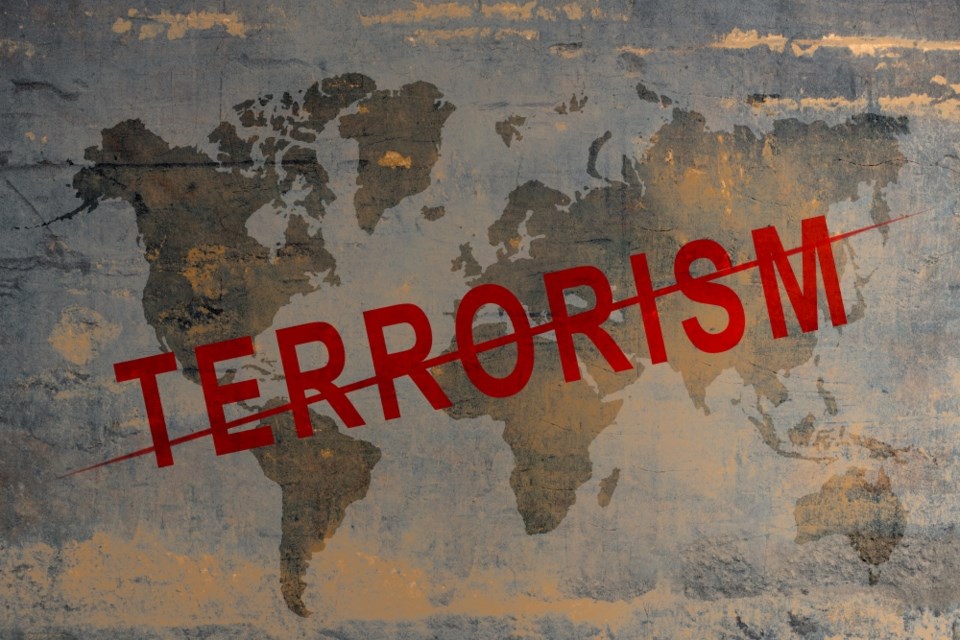There was a time when terrorist attacks were almost routine.
Before 9/11 and following that terrifying tipping point, in the early 2000s, news about suicide bombers and other kinds of terrorist attacks was coming regularly from different parts of the world. At some point, the trend switched to suicide drivers, steering into crowds in different countries for different reasons and with different messages.
I remember discussing a dilemma of terrorism with my classmates and professors in the mid-2000s when I was still a journalism student at university. We were exploring the phenomenon of terrorism and our role in it. On the one hand, journalists have to cover the news, especially those affecting public safety. (And even if professionals are slow on reaction, in today's world of social media, the public will have information, along with exaggerated rumours and guesses, spreading with the speed of light.)
On the other hand, most terrorist attacks would have close to zero influence if they were not covered, as their main goal is to start a wide wave of fear, make people feel vulnerable anywhere they are, start panic and in this way destabilize the society.
In the '90s, governments negotiated with terrorists, but after 2001, that trend globally started changing. By the late 2010s-early 2020s, it seemed that terrorist attacks became a bit of a notion of the past, as governments, globally and individually, were finding ways to prevent them and mainly make them harder and harder to implement.
Of course, we had ISIS with their unbelievably cruel yet more individualized acts of terrorism in more recent years, and other random acts of violence aimed at spreading fear. Yet, it seemed that the time of widespread terrorism was almost over. (Israel with their regular conflicts was one of the exceptional regions in that sense, but even for them the Oct. 7 attack came as an earthquake.)
The recent vast terrorist attack on the Crocus City Hall concert venue and mall near Moscow that claimed 137 lives as of Sunday was on a bigger scale and came as a shock for many.
The U.S., along with some other countries including Canada, warned their citizens in Russia of the potential for such a situation ahead of the presidential election earlier in March. But there was no clarity on what was to happen, and the timeframe tipped at the potential for the government to be harsh if there were to be any civil disturbances.
There were some small visible protests, but nothing major. Nevertheless, the attack happened, but it was later, less than a week after the Russian president claimed his fifth term with record, close to 90 per cent support in the most non-transparent election.
As of Sunday, while the executors were arrested and being questioned, it wasn't clear who and for what purpose the attack was organized. Armed people burst into a concert hall, shooting adults and kids, and setting the building on fire. The American authorities were quick to point at the Islamic State in Khorasan (ISIS-K), which also claimed responsibility for it. But a deeper look at the organization, its activity and resources makes their involvement doubtful.
Russia is searching for a Ukrainian connection; Ukrainian authorities deny it. Some Kremlin opposition was fast to blame the government for organizing the attack, similar to the late '90s explosions in Moscow (which, according to one of the theories, were organized by FSB) in order to tighten the screws and potentially announce another wave of mobilization.
I'd say it's too early for any conclusions on that.
But while authorities are searching for who to blame and punish, and how to strengthen their anti-terrorism rules and regulations, I think to many people, no matter where they are, this attack came as a strong, yet just another reminder that terrorism, as a tool, is not written off.
Almost any collective traumatizing experience unites people who are directly involved or just watching it happen. (Millions of people around the world to this day remember what they were doing and what they felt when the 9/11 attack was transpiring on TV and will forever remain a part of that tragedy.) For those closer to the epicentre of traumatic events, those memories and feelings often become a part of identity and are easily retriggered when something similar happens. But they affect even those further away from it.
The recent attack came as a trigger for many, reminding people globally of our own emotions of other similar traumatic experiences which we probably empathized with more. It mobilizes those imprinted feelings of vulnerability and fear, and reminds us that as inhumane as it is, terrorism is still around, even in our highly humane and humanitarian times.




